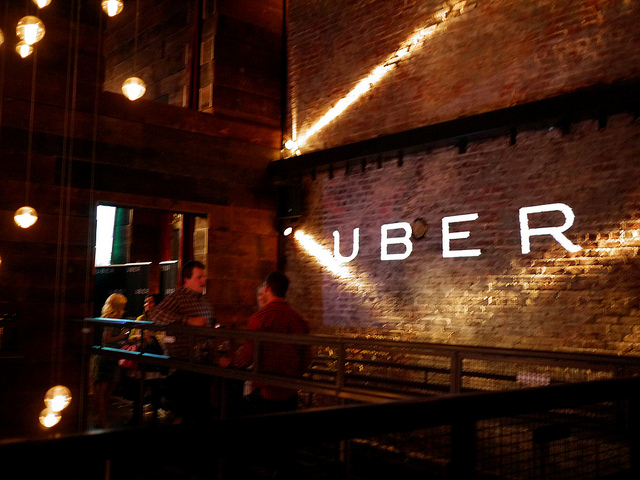
Image via Flickr/5chw4r7z, CC BY-SA 2.0
If you didn’t already read it, London has decided not to renew Uber’s operating license, which expires at the end of the month. The service will continue operating indefinitely while it appeals, and I doubt it will ultimately be forced out of the market. But we’ll see.
I don’t use a car service that much, but when I do it’s usually Uber. In New York, Uber is basically a replacement for a cab or black car to and from the airport. But in cities that never had good cab service, Uber is a revolution. I used to have to rent a car when I’d go to Indianapolis, for example. Now I can just Uber around. Uber disrupted the regulatory schema of taxi medallions, and brought technology to bear on the on-demand transport problem to create the impossible dream of better than taxi service in cities where there was nothing before.
Uber accomplished what it did in part because, being branded a technology company, it didn’t have to play by the rules that applied to other ordinary businesses. They didn’t care if you licensed them or not. They just showed up and started operating. Though eventually they started playing the rules in various places, they continued to take a militant approach to refusing to countenance any rule they didn’t like under threat of pulling out. And they engaged in hardball lobbying and politics. (When New York contemplated restricting Uber’s operation, the company created a “De Blasio” mode in the app, which gave the message “No cars available.”)
One thing they had on their side is that every city is so desperate to be taken seriously as a tech hub that they can’t afford to do anything that might be perceived as tech hostile. The tech companies certainly want to make you think that way. Cities with indisputable tech status could say No. Austin did. In response to reports of sexual assaults by Uber drivers, the city required a background check with a fingerprint scan. Uber and Lyft spent a stunning $10 million to try to overturn this via a referendum. Their effort failed. Uber then went to the Texas legislature to get them to override Austin’s ordinance The London revocation is also in part a result of sexual assaults by Uber drivers that the company did not take seriously.
Uber’s new CEO is apologizing profusely. Presumably they’ll do what it takes to mollify London for the time being. But it’s not clear they intend to change their ways in any systemic manner.
Uber is a stunningly arrogant company. The dilemma that we face is that without this arrogance and disregard of the rules, it’s doubtful any service of this type would ever had been able to successfully launch. Anyone trying to play by the rules would have been crushed by the medallion guys.
Silicon Valley companies have been able to disrupt the status quo in part because they have had a free pass from the laws and practices that apply to everyone else. But this may be running out. What seemed appropriate back when these were plucky upstarts in a nascent, risky markets is less tolerable in multi-billion dollar bully monopolies or duopolies.
Perhaps that’s why they are under attack by many parties and in many directions. We’ll just have to watch how this develops. In the meantime, cities and states should think about creating entrepreneurial environments that aren’t dependent on Uber-style financial backing and tactics to succeed in.
from Aaron M. Renn
http://www.urbanophile.com/2017/09/25/ubers-london-operating-license-revoked/
No comments:
Post a Comment